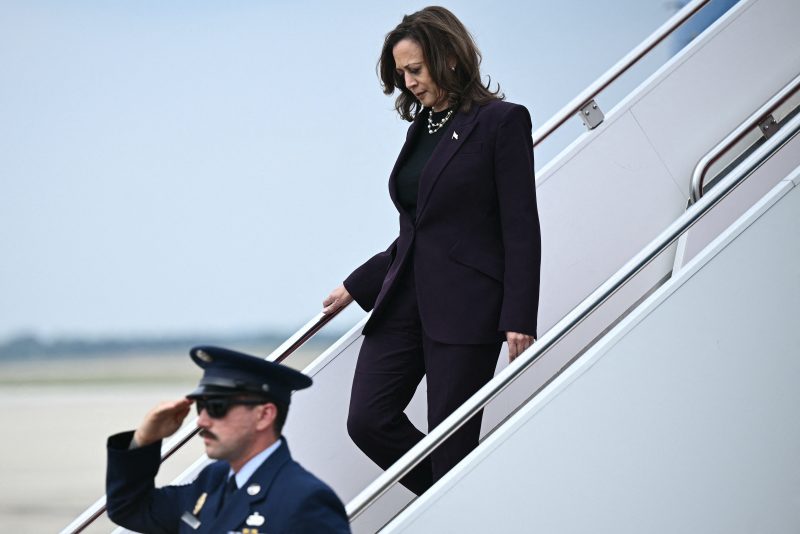Throughout history, political campaigns have often been characterized by heated debates, ideological clashes, and personal attacks. The 2020 United States presidential election is no exception, as the race between Democratic candidate Joe Biden and incumbent President Donald Trump has been marked by intense scrutiny and criticism from various factions. Kamala Harris, Biden’s running mate, has been a particular target for the far-right, facing a barrage of attacks as she steps up to face Trump.
The far-right’s attacks on Harris have been both anticipated and alarming. As the first woman of color on a major presidential ticket, Harris represents a significant milestone in American politics. However, her groundbreaking candidacy has also made her a lightning rod for criticism, particularly from the far-right.
One of the primary tactics employed by the far-right in their attacks on Harris has been the spreading of disinformation and conspiracy theories. False claims about Harris’s background, beliefs, and policies have circulated widely on social media and right-wing news outlets, creating confusion and sowing doubt among voters. From allegations of socialist ties to accusations of being part of a deep state cabal, Harris has been the target of a wide range of baseless attacks aimed at undermining her credibility and appeal.
Furthermore, the far-right has also sought to paint Harris as an extremist and a threat to American values. By cherry-picking and distorting her record on issues such as criminal justice and immigration, they have attempted to portray her as radical and out of touch with mainstream voters. These attempts to demonize Harris are not only misleading but also serve to perpetuate harmful stereotypes and division within the electorate.
In addition to their attacks on Harris’s character and policies, the far-right has also engaged in tactics designed to intimidate and harass her supporters. From online trolls spreading hate speech to organized campaigns of harassment and threats, those who openly express their support for Harris have found themselves targeted by a vocal and aggressive minority. This toxic environment not only undermines the democratic process but also creates a chilling effect that stifles political participation and discourse.
Despite the far-right’s concerted efforts to undermine her candidacy, Kamala Harris remains a formidable and resilient candidate. Her years of experience as a prosecutor, senator, and now vice-presidential nominee have equipped her with the tools and skills necessary to weather the storm of criticism and attacks. By staying focused on her message of unity, justice, and progress, Harris has the opportunity to rise above the noise and connect with voters on a deeper level.
In conclusion, the far-right’s attacks on Kamala Harris are a reflection of the intense political polarization and divisiveness that characterizes the current election cycle. By resorting to disinformation, demonization, and harassment, they seek to sow discord and doubt among voters. However, Harris’s strength, resolve, and vision for a better future offer a compelling alternative to the politics of fear and division. As she steps up to face Trump and the far-right, Harris has the opportunity to embody a message of hope, unity, and progress that resonates with the American people.


























